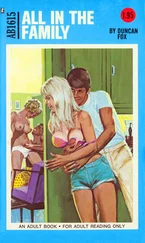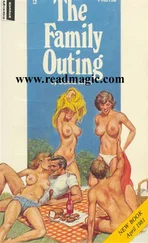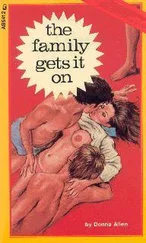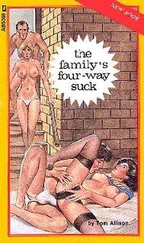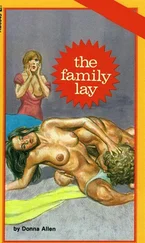“Why did you tell the police Anne’s body was buried in your garden when it wasn’t? I was told you insisted they dig up every square meter of your land, to check.”
“I did. I had a hunch—it turned out to be wrong. I wanted to help try and find Anne, and . . . well, I suppose when someone digs a grave out of the earth immediately outside your front door, you can’t help wondering if that someone plans to bury a body there.” I smile at him. Well, you did ask . . .
Stephen bites his upper lip. “But the police never thought Anne died in Devon,” he says. “You know what they found on her clothes.”
Is he asking me a question? It sounded like a statement of fact.
“Yes.”
“They think Anne died in London, where she apparently went to meet one of your former colleagues—Donna Lodge—having sent an email from an internet café to make the arrangement. She never turned up for that meeting. It’s funny—I know that can’t be true, about the internet café. Anne was barely aware such places existed.”
He looks hard at me. Says, “I didn’t tell the police that. Don’t worry.”
My heart starts to pound. Is he saying what I think he’s saying?
No. I don’t want your help or protection. I’m not Anne.
“I’m sorry for what you went through, Justine.”
Sorry? I nearly laugh. It’s so useless: a floppy, meaningless word coming from him, given everything he did and didn’t do. “Apologize to your kids, not me,” I manage to say. “I don’t care how you feel.”
“I’m also sorry my wife is dead. Missing presumed dead, but . . . well, I know she’s dead, Justine. Beyond doubt.”
And he knows who killed her. That’s what his eyes are trying to tell me, that pointed look.
He says, “I’m sorry Anne’s dead for her sake, you understand. All she’ll miss out on . . . Well, and I suppose for my sake a little as well. Anne wasn’t always . . . difficult. She could be very kind sometimes.”
“I don’t care, Stephen.”
“No, I . . . I can see. Anyway . . . you mustn’t worry,” he tells me.
Anybody’s ally.
I don’t want to be curious about him—I want not to think about him at all—but I can’t help wondering if, in his own opinion, he stands for anything at all.
Feel ashamed, you bastard.
“The police won’t dig up your garden again,” he tells me. “They’ve already done so at your instigation and satisfied themselves that there’s nothing there. Clever of you. They wouldn’t dig up the same garden twice.”
I nod. That was my reckoning precisely. Particularly since I insisted they check every inch of my land. I was so eager to help in the search for missing Professor Anne, the brilliant academic and devoted wife and mother.
The credit for my cleverness should, strictly speaking, go to Anne herself. I was less imaginative before she came into my life—considerably so. That’s one benefit of knowing a pathological liar: first you marvel at their inventive brio, then you think, “I could do that too. What’s stopping me?”
Anne gave me the burial-in-the-garden idea; Anne came up with the surprise solution to the Ingrey murder mystery—a mother and father who join forces first to protect their daughter from all harm and then, later, to kill her, because they have perfected the art of compromise. Who would ever guess that?
I rose to Anne’s challenge and formulated an equally unguessable plan. I think I succeeded. Who would suspect me of burying a body—one missing most of its brain—in the very same garden I made the police dig up only a few days earlier to search for that same body? I insisted to every police officer who would listen that Anne must be buried in the grounds of Speedwell House, knowing full well that she wasn’t—yet.
Was Stephen watching from one of our clusters of trees the night Olwen and I buried Anne’s body? Or from his side of the river, with his binoculars trained on my house? I don’t believe he guessed, so he must know.
“Look,” he says, pointing.
I turn. Ellen and George are handing out the few remaining buffet snacks to their classmates, conferring about who’s had how many so far and who’s owed what.
“They must be the bossiest in their year,” I say.
Why am I talking to him, and so politely? Because I think he could land me in prison if he chose to? Or because polite conversation is what’s expected at memorial dos?
No one expects anybody, ever, to start yelling about evil. Look, right there—evil! Wickedness, right here and now. People would say you were mad if you did that. It would take up too much time, also. All of one’s time, arguably. Better to brush it under the carpet, under the grass, under the tablecloth beneath the canapés.
“Either bossy or natural leaders, however you want to put it,” I amend my previous statement to make it less critical.
“I want to put it this way: they’re good kids,” says Stephen. “In every way, good people.”
“Yes. Yes, they are,” I say. Is that supposed to be the happy ending to our story? He let his wife ruin people’s lives and I killed her, but it’s okay because we have wonderful children?
No one gets to write my story apart from me. Least of all Stephen Donbavand, ally of Anne for so many years.
I’ll write it myself.
Once upon a time there was a woman called Justine Merrison. She tried so hard to do Nothing, but she failed. She ended up doing Something, a bigger Something than she’d ever done before: she killed a woman. Murdered? I don’t know. Maybe. It wasn’t self-defense, but there was an element of defense to the killing. I could tell you the full story, but I guarantee you wouldn’t believe me, so I won’t bother. Or maybe I’ll tell you what happened but present it as fiction—you probably wouldn’t believe me then, either. You might say, “You can’t have made that up. Is there an element of truth to it?”
After causing the death of Anne Donbavand, Justine was either caught one day and locked up, or not—it’s too soon to say. What I can tell you for certain is that she never regretted what she did, not for a fraction of a second.
She hopes to live happily ever after. She thinks that’s what she deserves.
ACKNOWLEDGMENTS
I am hugely grateful to the following people: Peter Straus and Matthew Turner from Rogers, Coleridge and White; Carolyn Mays, Karen Geary, Lucy Hale, Becca Mundy, Abby Parsons, Jason Bartholomew, Anna Alexander, Valeria Huerta, Al Oliver, Jessica Killingley, Naomi Berwin and everyone else at Hodder—there are too many people to name all individually, but I’m extremely thankful to all of you for all your hard work on my books.
I’d also like to thank Dan, Phoebe, Guy and Brewster; Adele Geras, Chris Gribble, Emily Winslow; the inimitable Dan Mallory and all at William Morrow in America; all my wonderful international publishers who look after my books all over the world; Professor Malcolm Coulthard; and the real “Ops.”
Speedwell House is loosely based on Greenway, Agatha Christie’s holiday home in Devon, which I might never have come to know as well as I do if it weren’t for Mathew and James Prichard—so an enormous thank-you to them, and to Agatha Christie for inspiring me since the age of twelve.
ABOUT THE AUTHOR
SOPHIE HANNAHis the New York Times bestselling author of numerous psychological thrillers and The Monogram Murders , the first novel to be authorized by the estate of Agatha Christie. Her books have received many awards, including a UK National Book Award, and are published in twenty-seven countries. She lives in Cambridge, England.
Читать дальше


